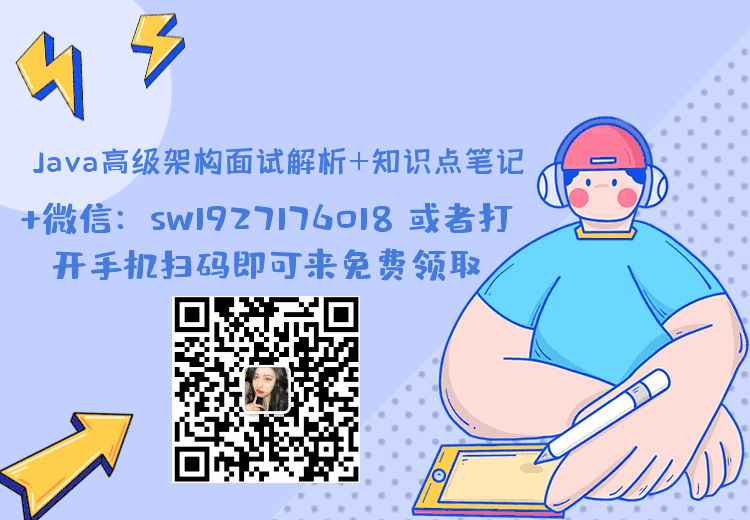Preface
Whether it is school recruitment or social recruitment, various interviews and written examinations cannot be avoided. How to prepare for these things is extremely important. Whether it is a written test or an interview, there are rules to follow. What I mean by "rules to follow" just means that you can prepare in advance for technical interviews.
After strategizing, the decisive victory is thousands of miles away! Without fighting an unprepared battle, I think everyone can prepare for the interview from the following aspects:
- Self introduction. (You can definitely introduce it like this: "My name is XX, gender, where I come from, that school is that, what do I love to do", remember: talk more about what is not on your resume, and talk more about where you are better than others!)
- What knowledge points may be involved in the interview and which knowledge points are the key points.
- Which questions are frequently asked during the interview, and how to answer them during the interview. (It is strongly not recommended to recite questions, first: how much can you remember by recitation this way? How long can you remember? Second: it is difficult to persist in studying the recitation method!)
- How to write your own resume.
The important points for everyone to be clear are:
- You must be careful about what you write on your resume. This may be a place where interviewers ask a lot of questions;
- Most fresh graduates have no work experience or internship experience when looking for a job.
- It is very important to show your project experience perfectly.
How to write a resume
As the saying goes: "Workers must first sharpen their tools if they want to do well." Preparing a good resume plays a vital role in finding a good job.
Why is the resume important?
Let’s start with the interview:
If you are applying online, your resume will inevitably be screened by HR. A resume HR may take 10 seconds to look at, and then HR will decide whether your level is Fail or Pass.
If you are inferring, if your resume does not have any advantages, even the people who infer you will be powerless.
In addition, even if you pass the screening, in subsequent interviews, the interviewer will judge whether you are worthy of his time for the interview based on your resume. Therefore, the resume is like a facade of ours. The degree determines whether you can enter the next round of interviews.
From the interview:
I find that everyone prefers to read the face scriptures, which is understandable, but most of the face scriptures do not tell you that many questions are only asked under certain conditions. To give a simple example: under normal circumstances, you will be asked what you know on your resume (Java, data structures, networks, algorithms, etc., everyone must ask). For example, if you write, you can redis. The interviewer will probably ask you some questions about redis. For example: the common data types and application scenarios of redis, why redis is single-threaded so fast, the difference between redis and memcached, redis memory elimination mechanism, etc.
So, first of all, you have to be clear: Don’t write on your resume what you don’t know . In addition, you have to consider how you can make your highlights stand out in your resume , such as: what you have done in a certain project and what problems have been solved (as long as there are projects, there must be problems to be solved), your certain After what technology is used in a project, the overall performance and concurrency have improved a lot and so on.
Interview and work are two different things. Smart people will lead the interviewer to their field of expertise, while others will be led by the interviewer. Although interviews and work are two different things, if you want to get the offffer you are satisfied with, you must be strong.
These 3 points you must know
1. Most of the company's HR say that we don't value academic qualifications (lie to you!), but if your school is not outstanding, it is difficult to stand out from a bunch of resumes, unless your resume has special highlights, such as : The internship experience of a certain big factory, the prize of a certain competition, etc.
-
Most fresh graduates have no work experience or internship experience, so if you are a fresh graduate, don't miss the autumn and spring recruitment. Once you miss it, you will most likely face social recruitment. At this time, if you don’t have work experience, you may face various obstacles, resulting in not being able to find a good job.
-
You must be careful about what you write on your resume. This is where the interviewer asks a lot of questions;
-
It is very important to show your project experience perfectly.
Two rules you must know
①STAR法则(Situation Task Action Result):
- **Situation: **Under what circumstances did it happen;
- **Task:: **How do you define your task;
- **Action: **In view of this situation analysis, what action did you adopt;
- **Result: **What is the result, what did you learn in this situation.
In short, the STAR law is a way to tell one's own story, or in other words, a clear and organized composition template. No matter what it is, if you use this rule reasonably and skillfully, you can easily describe the logical way of things to the interviewer and show the clarity, organization and logic of your own analysis and explanation of the problem.
The following paragraph is taken from Baidu Encyclopedia, I think it is very good:
The STAR rule, the skill rule for answering top 500 interview questions, is highly respected by successful interviewers and top 500 HR. Since this rule is widely used in answering interview questions, although we are still in the resume writing stage, we can think of the interview questions when writing resumes, which will make ourselves more proactive and confident, and achieve the relevance of resumes and interviews. The logic is strong, so you won't go to the interview in a month, but forget everything in your resume (not to mention some friends will slightly exaggerate the content of the resume). When we write a resume, everyone should write down their own work experience, activity experience, presumably every classmate will spend at least half a day or even longer searching all relevant experiences in their minds, and strive to find the best thing Write it on your resume. But at this time, we have to pay attention, any point of information on the resume may become the key question object in future interviews. Therefore, you can’t just write down the experience that makes you feel the best, and you must think about the future. In the interview, if the experience you wrote is asked by the interviewer, can you really answer fluently and smoothly, and through this experience, can you prove that you are the right person for this position?
②FAB rule (Feature Advantage Benefifit):
- **Feature: What is **;
- **Advantage: **What is better than others;
- **Benefifit: **If you hire you, what benefits will the recruiter get?
To put it simply, this rule is mainly to let your interviewer know your strengths and how it will help the company after recruiting you.
How to write project experience?
It is normal to have one or two project experiences on the resume, but very few can really show the project experience well to the interviewer. For the project experience, you can consider writing from the following points:
- A feeling about the overall design of the project
- What are you responsible for, what you did, and what role did you play in this project
- From this project, you learned those things, used those technologies, and learned the use of new technologies
- In addition, in the project description, it’s best to reflect your own comprehensive qualities, such as how you coordinated the collaborative development of project team members, or how you solved a difficult problem, or how you used it in this project What technology achieves what functions, such as: using redis as a cache to improve access speed and concurrency, using message queues to cut peaks and reduce traffic, and so on.
How to write professional skills?
Ask yourself what you will first, and then see what your intended company needs. Generally, HR may not know much about technology, so he may focus on the keywords of your professional skills when selecting resumes. For the skills that the company requires but you don't, you can spend a few days to learn it, and then write on your resume that you know this skill. For example, you can write:
- Dubbo: proficient
- Spring: proficient
- Docker: Master
- SOA distributed development: master
- Spring Cloud: understand
Some other small tips
- Try to avoid subjective expressions, reduce vague adjectives, try to be concise and clear, and have a clear logical structure.
- Pay attention to typesetting (no need to be colorful), try to use Markdown syntax.
- Pay attention to the authenticity of your resume, and be sure not to write something you don’t know, or deceptive content
- Project experience suggestions are sorted in reverse chronological order. In addition, project experience is not about many, but about bright spots.
- If there is too much content, there is no need to compress the content to one page, just keep the layout clean and tidy.
- At the end of your resume, it’s best to add: "Thank you for taking the time to read my resume. I look forward to the opportunity to work with you." This sentence shows that you will be very polite.
Let's talk about the technical questions the interviewer asks during the interview. The questions the interviewer asks during the interview will be different for each person.
Java basics
- The difference between overloading and rewriting
- What is the difference between String and StringBuffffer and StringBuilder? Why is String immutable?
- Automatic boxing and unboxing
- == and equals
- Some summary about fifinal keywords
- Summary of common methods of the Object class
- Exception handling in Java
- Get the two commonly used methods of keyboard input
- What is the difference between interface and abstract class
![[External link image transfer failed. The source site may have an anti-leech link mechanism. It is recommended to save the image and upload it directly (img-f8A35YNn-1610956508269)(https://upload-images.jianshu.io/upload_images/22934207-d7616a8ac0763b4b?imageMogr2 /auto-orient/strip%7CimageView2/2/w/1240)]](https://img-blog.csdnimg.cn/20210118155532444.png?x-oss-process=image/watermark,type_ZmFuZ3poZW5naGVpdGk,shadow_10,text_aHR0cHM6Ly9ibG9nLmNzZG4ubmV0L2x5bDU0NTQ=,size_16,color_FFFFFF,t_70)
Java Collection Framework
- Similarities and differences between Arraylist and LinkedList
- The difference between ArrayList and Vector
- The underlying implementation of HashMap
- The difference between HashMap and Hashtable
- The difference between HashMap and Hashtable
- Why is the length of HashMap a power of 2
- HashMap multi-threaded operation causes infinite loop problem
- The difference between HashSet and HashMap
- The difference between ConcurrentHashMap and Hashtable
- The specific implementation of ConcurrentHashMap thread safety/underlying specific implementation
- Summary of the underlying data structure of the collection framework
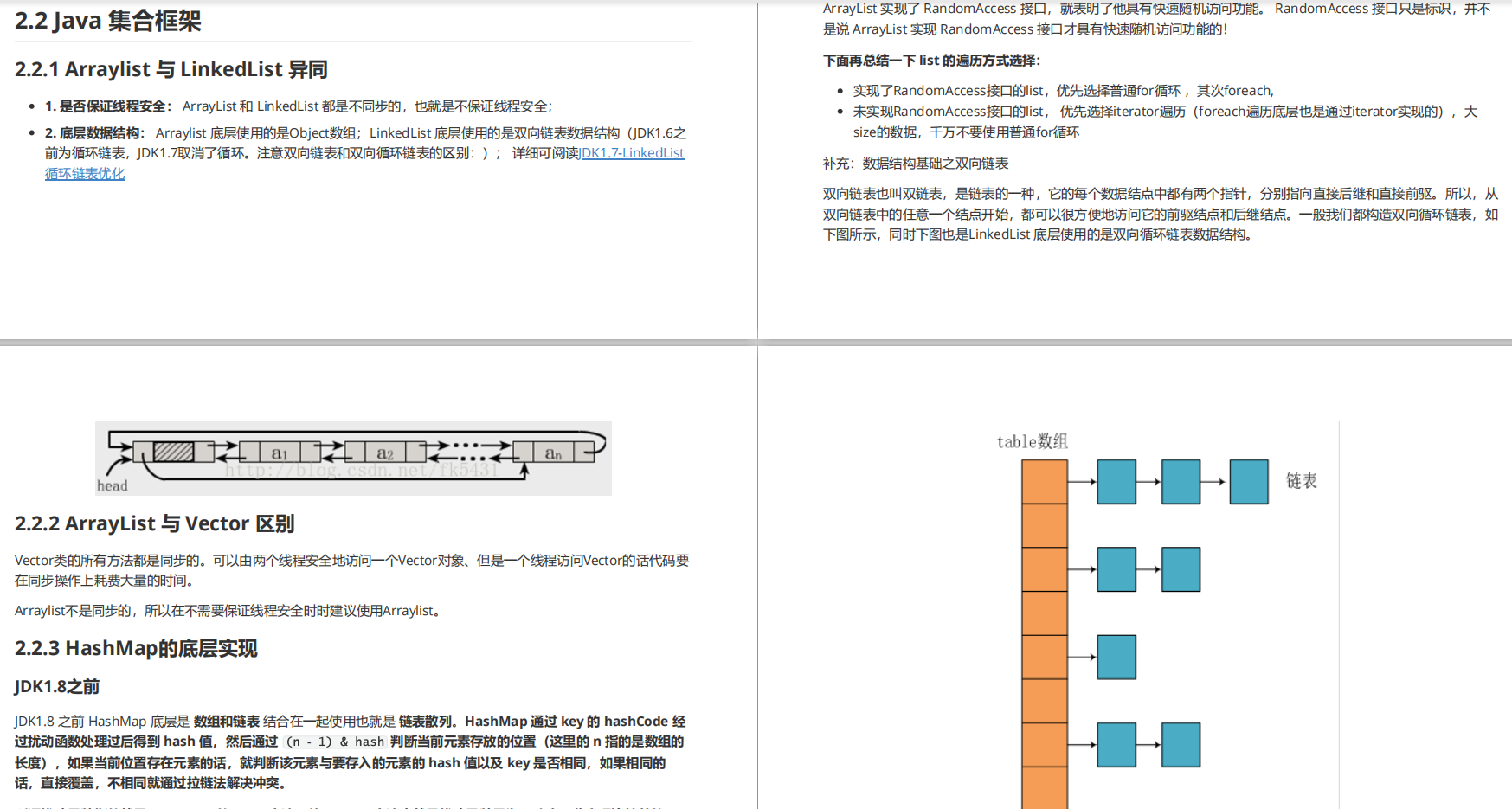
Java multithreading
5 combos of synchronized keyword in an interview
- Talk about your understanding of the synchronized keyword
- Tell me how I use the synchronized keyword, is it used in the project?
- Talk about the underlying principle of the synchronized keyword
- Talk about what optimizations have been made at the bottom of the synchronized keyword after JDK1.6. You can introduce these advantages in detail.
- Is it
- Talk about the difference between synchronized and ReenTrantLock
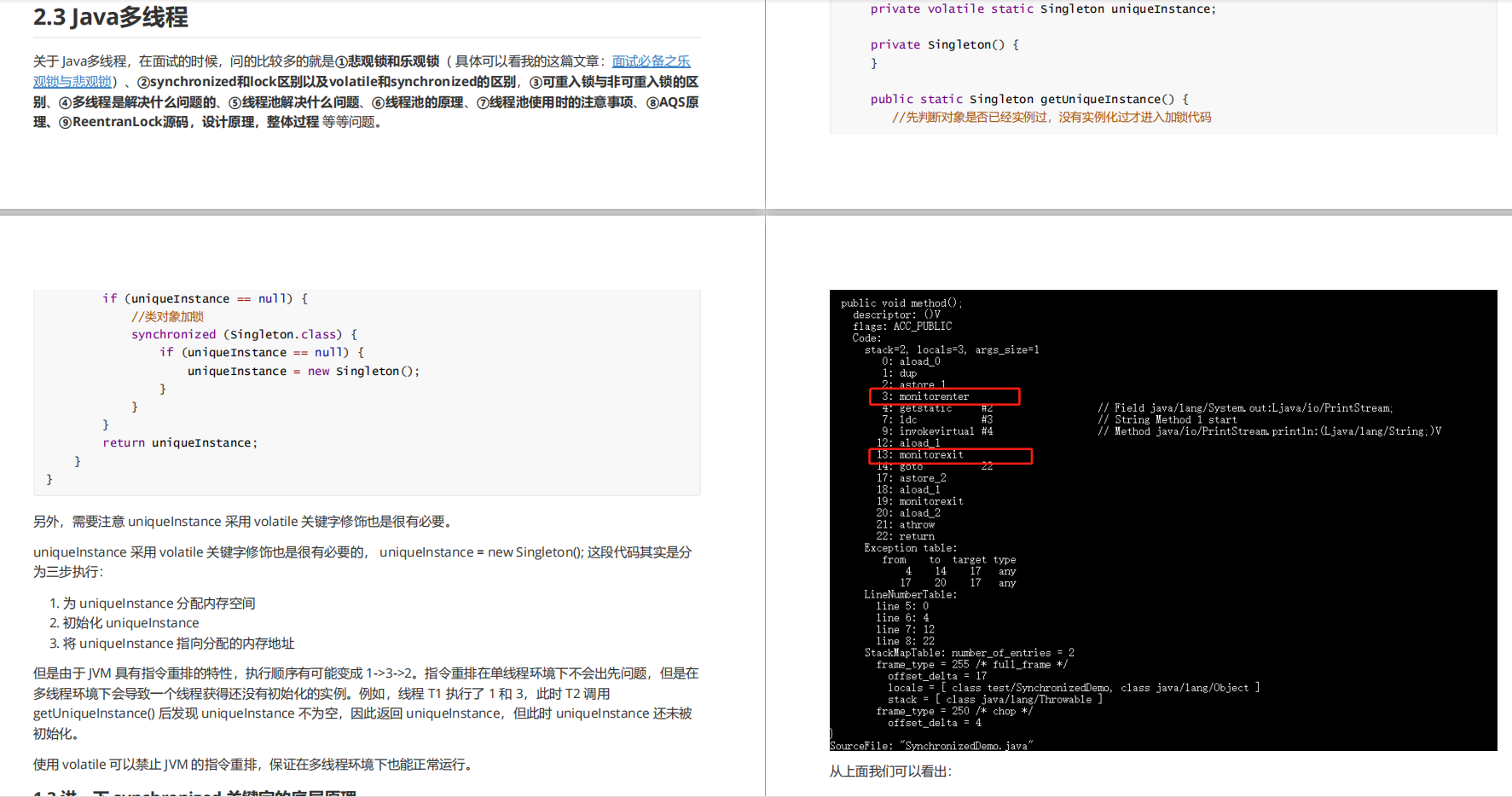
5 combos of thread pool in the second interview
- Talk about the difference between the synchronized keyword and the volatile keyword
- Why use thread pool?
- Implement the difference between Runnable interface and Callable interface
- What is the difference between execute() method and submit() method?
- How to create a thread pool
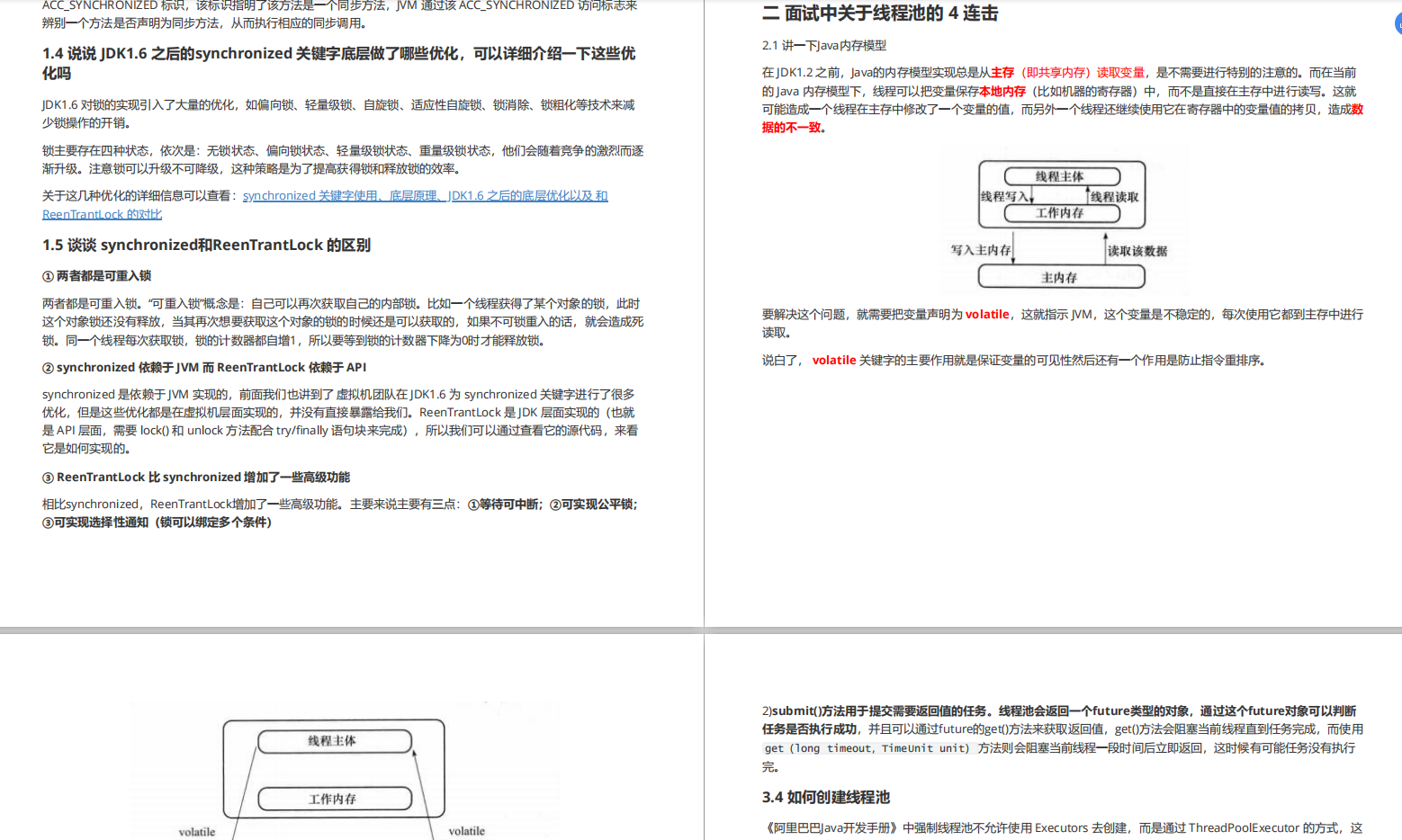
4 combos about Atomic in three interviews
- Introduce Atomic atomic class
- What are the 4 types of atomic classes in the JUC package?
- Talk about the use of AtomicInteger
- Can you give me a brief introduction to the principle of the AtomicInteger class
AQS
- AQS introduction
- AQS principle analysis
- AQS principle overview
- How AQS shares resources
- AQS bottom layer uses the template method pattern
Summary of common interview points for computer networks
- The difference between TCP and UDP protocols
- Enter the URL address in the browser ->> The process of displaying the homepage
- The relationship between various protocols and HTTP protocol
- HTTP long connection, short connection
- TCP three handshake and four wave hands (frequent interviewer)
Linux
- Briefly introduce the Linux file system?
- Do you understand some common Linux commands?
- The difference between TCP and UDP protocols
- What are the main types of kernel locks in Linux?
- How to apply for a large chunk of kernel memory?
- What are the functions to apply for kernel memory through the partner system?
- What is the function of Linux soft interrupt and work queue?
MySQL
- Talk about my understanding of the two common storage engines of MySQL: MyISAM and InnoDB
- Do you understand database indexes?
- Why can index improve query speed?
- Let's start with the basic storage structure of MySQL
- How does Mysql add indexes to table fields? ? ?
- What are the technical characteristics of Mysql?
- Talk about common optimization methods for large tables
- When the number of records in a single MySQL table is too large, the CRUD performance of the database will be significantly reduced. Some common optimization measures are as follows
- Compared with Oracle, what are the advantages of Mysql?
Redis
- Why use redis / why use cache
- Why use redis instead of map/guava for caching?
- The difference between redis and memcached
- Redis common data structure and usage scenario analysis
- redis set expiration time
- Redis memory elimination mechanism (There are 2000w data in MySQL and only 20w data in Redis. How to ensure that the data in Redis are all hot data?)
- Redis persistence mechanism (how to ensure that the data can be restored after redis hangs and restarts)
- Cache avalanche and cache penetration problem solutions
- How to ensure data consistency between the cache and the database when it is double-written?
- How to solve Redis's concurrent competition Key problem
Spring
- The scope of Spring Bean
- Isolation level in Spring transaction
- Transaction propagation behavior in Spring transaction
- What are the benefits of using the Spring framework?
- What is Inversion of Control (IOC)? What is dependency injection?
- The life cycle of IOC container to Bean:
- Briefly describe the AOP and IOC concepts AOP:
- What design patterns are used in the Spring framework?
- Please give an example of how to inject a Java Collection in Spring?
message queue
- Talk about what is a message queue
- Why use message queue
- Some problems caused by using message queues
- Comparison of common message queues
- activemq What if the data submission is unsuccessful (message is lost)
- How to solve the message duplication problem
- What happens when I send a publish message to a non-existent exchange? What happens when you execute a consume action to a non-existent queue?
- Why do we say that the condition to ensure that the message is reliably persisted is that the queue and exchange have the durable attribute, and the message has the persistent attribute?
Dubbo
- What is Dubbo?
- What is RPC? What is the principle of RPC
- Why use Dubbo?
- What is distributed
- Why is it distributed?
- Explain how Dubbo works
- Let me explain what load balancing is
- Zookeeper downtime and direct connection to dubbo
- Let's take a look at the load balancing strategy provided by Dubbo
data structure
- What is a queue
- Type of queue
- Queue in the Java collection framework
- What is Set
- HashSet and TreeSet underlying data structure
- What is the common implementation class of List
- What can be the string type of the column?
- Talk about the difference between B+ tree and B tree, advantages and disadvantages, etc.?
Write at the end
Finally, I will emphasize a few points:
- You must be cautious about what you write on your resume, and you must be very familiar with the things on your resume. Because under normal circumstances, the interviewer will ask based on your resume; it is also very important to have a project that can be on the table. This is likely to be a place where the interviewer will ask a lot of questions, so review yourself before the interview Project done
- Talk to the interviewer about basic knowledge such as the use of design patterns, the use of multi-threading, etc., which can be combined with specific project scenarios or how you use them in daily life;
- Pay attention to your own open source Github project, the interviewer may dig into your Github project to ask questions;
- It is recommended to know in advance the values of the company you want to interview and judge whether you are suitable for this company.
In addition, I personally feel that the interview is also like a brand new journey. Failure and victory are common things. Therefore, I advise you not to become discouraged and lose your fighting spirit because of the interview failure. Don't be complacent because you passed the interview. What awaits you is a better future, keep on!
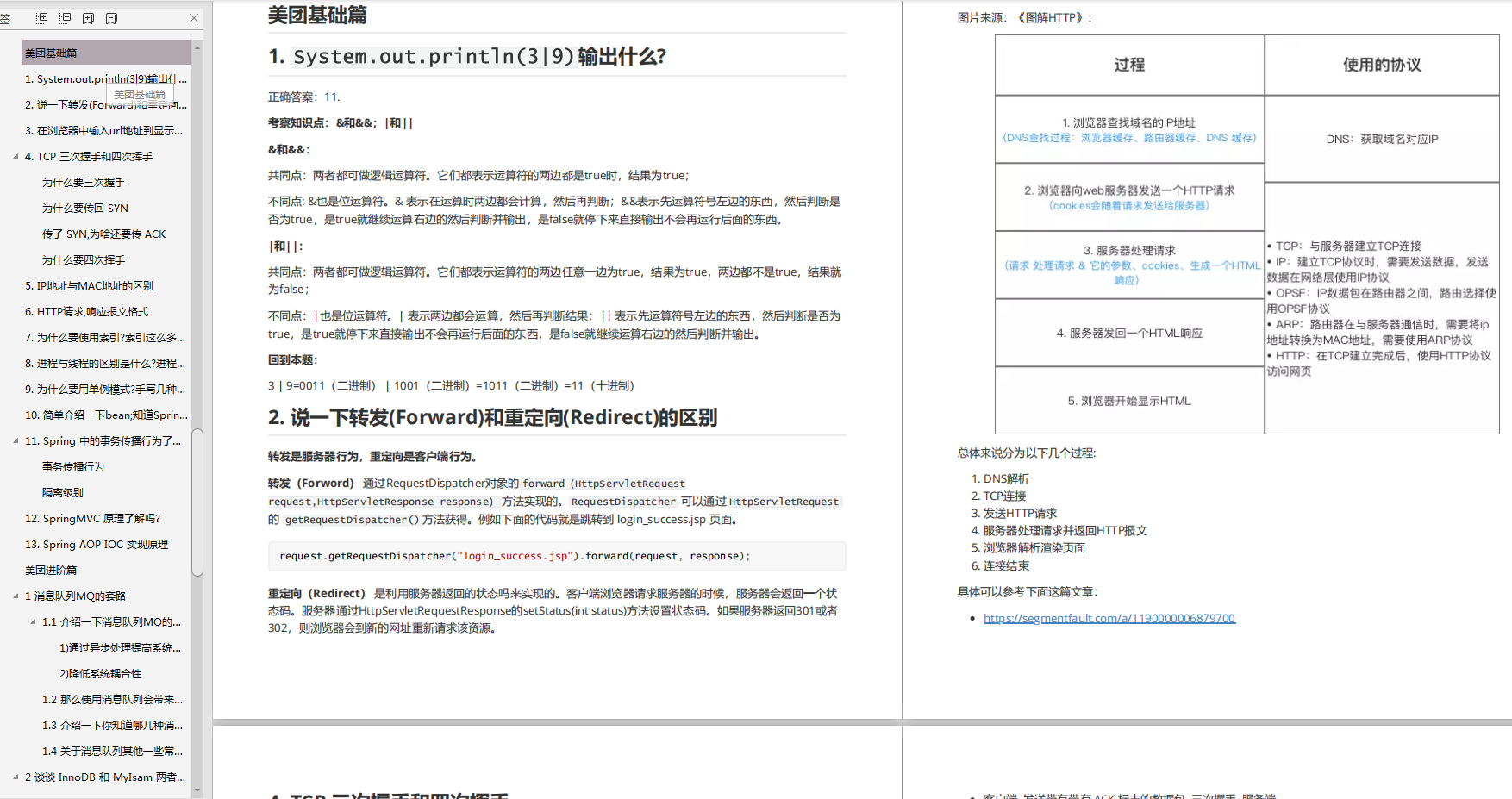

The editor of this document has been sorted out and is suitable for a surprise before the interview. Readers and friends in need can pay attention to the editor.
Information acquisition method: like + click here or scan the QR code in the picture to add the information address
